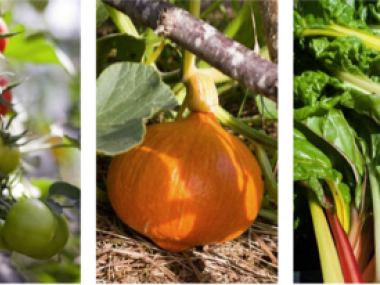Diet for a Green Planet: Educational Institutions Take the Way of Organic Products in Łomża
Edited on
09 October 2017How do we pass from the idea and prototyping phase of social innovation to implementation and scaling? Here are the first steps that the Polish partner of Diet for a Green Planet pilot network took in this sense.

In Łomża, the schools and kindergartens are in charge of food purchases. This means that a transfer to more sustainable public meals – according to the Diet for a Green Planet concept – needs to involve continuous dialogue with the representatives of each unit. It also includes close collaboration with the farmers in the region, so that kindergartens or schools that want to make their meals more sustainable can be ensured to receive proper products.
Early in the project, cooperation between with Łomża municipality and local farmers began. To help in this process, a partnership was signed with the Podlaskie Centre of Agricultural Advisory, whose advisers give valuable contributions to the ongoing dialogue with farmers. “In parallel, we organized meetings with headmasters of educational institutions to inform them about the project and our ambition to change the public meals in our city”, says Daria Lutrzykowska, Communication Officer and an important member of the project team. “An important part of this was, of course, to educate these key stakeholders and make them see the advantages of our concept. Only if they themselves grasp and embrace the concept, will they take the step to start buying organic products from local farmers.”
In May, Łomża participated in the project’s first transnational conference, which took place in Södertälje, Sweden. The conference offered workshops, seminars and study visits aiming at increasing the partners’ understanding of the Diet for a Green Planet. But it also featured an exchange where chefs and kitchen staff from all partner cities were given the opportunity to work in kindergarten and school canteens and prepare food according to the concept. Three chefs from Łomża took part of this exchange, which gave them valuable insights in how the Diet for a Green Planet concept can be properly implemented in the actual canteens.
In June, the project team in Łomża arranged an extensive conference entitled “Healthy food in educational institutions”. The conference showcased examples from Södertälje’s work with sustainable public meals and it also offered chefs and kitchen staff from Södertälje the possibility to visit kitchens in Łomża, to conclude the bilateral exchange that began in Södertälje in May.

Pictures from the “Healthy food in educational institutions” conference in Łomża in June.
More than 100 people participated to the conference. The Deputy Mayor, civil servants and members of the city council and headmasters of educational institutions all took part and made the conference a huge success. Not only did it increase the understanding and awareness of the project, but more people actually joined the project by engaging in the Local Support Group… And all the while, the conference guests were served meals properly prepared according to the Diet for a Green Planet concept by the newly formed team of Polish and Swedish chefs.
At present, more educational institutions are actually purchasing organic products from local farmers in and around Łomża. And this year, during the summer holidays, there was an excellent opportunity to spread this concept about healthy and organic food. This was due to the fact that Kindergarten No 8, the driving force in this project was the one kindergarten in Łomża who had “summer duty”. This means that children from other kindergartens come to this one, while their normal kindergartens are closed. “This gave us the chance to speak both with the children – but also their parents – about our ideas when it comes to the food we serve. And also to actually serve it, says Daria Lutrzykowska. Many of the parents showed interest in this, and positively reacted to the fact that they could actually get better food for their children, without paying more money.”
When it comes to project results and outputs, the team from Łomża is now in the process of producing a Polish version of Södertälje’s ![]() Diet for a Green Planet in Practice – a handbook containing information and inspiration on the concept as well as and locally adapted recipes to be used by kitchen staff and chefs in kindergartens.
Diet for a Green Planet in Practice – a handbook containing information and inspiration on the concept as well as and locally adapted recipes to be used by kitchen staff and chefs in kindergartens.
When it comes to affecting policy making in Łomża the aim for this project is to start a process that will eventually lead to the creation of a municipal Diet Policy. Daria Lutrzykowska explains that the process is slow, but that there is progress. “Earlier in the project, there have been discussions with politicians about creating a Diet Policy. The response has been hesitant. But after the transnational conference in Mollet del Vallès (ES), where some important policy makers participated, we see some changes. They realize that this change doesn’t have to be very expensive and that there are other benefits that come with it; job creation, promotion of our region etc. However, we have upcoming elections in Łomża later in November and before we know the outcome, no one is really prepared to make any final decisions.”

The Łomża delegation during the transnational conference in Mollet del Vallès.
“This is the current situation and we will make the most of it, Daria Lutrzykowska concludes. The most important thing is that we see a change and an increasing will from policy makers to address this issue of sustainable food in our schools and kindergartens.”
Read More:
Diet for a Green Planet pilot network – URBACT minisite
![]() Diet for a Green Planet in Practice – Project publication
Diet for a Green Planet in Practice – Project publication
 Submitted by Simina Lazar on
Submitted by Simina Lazar on




